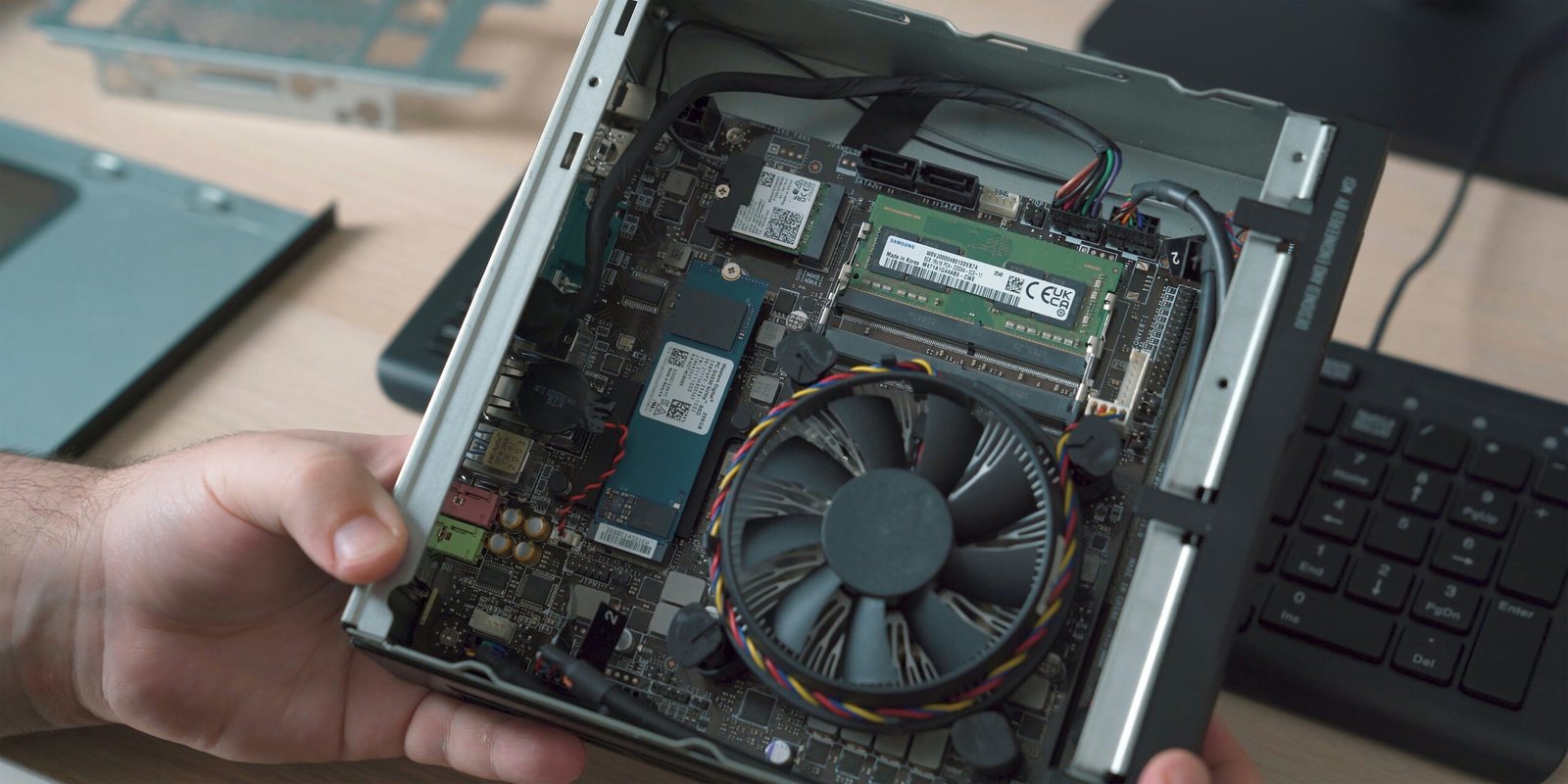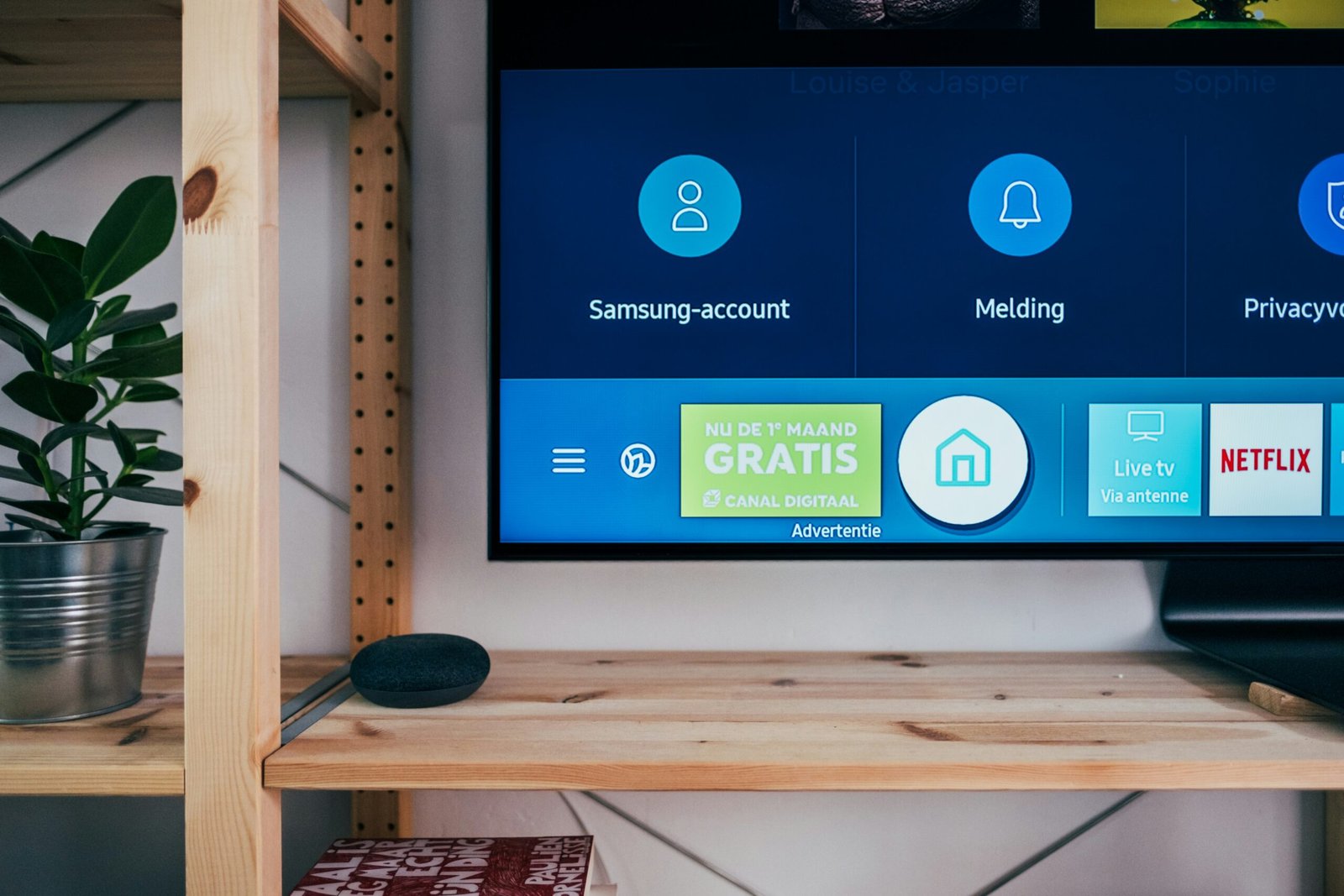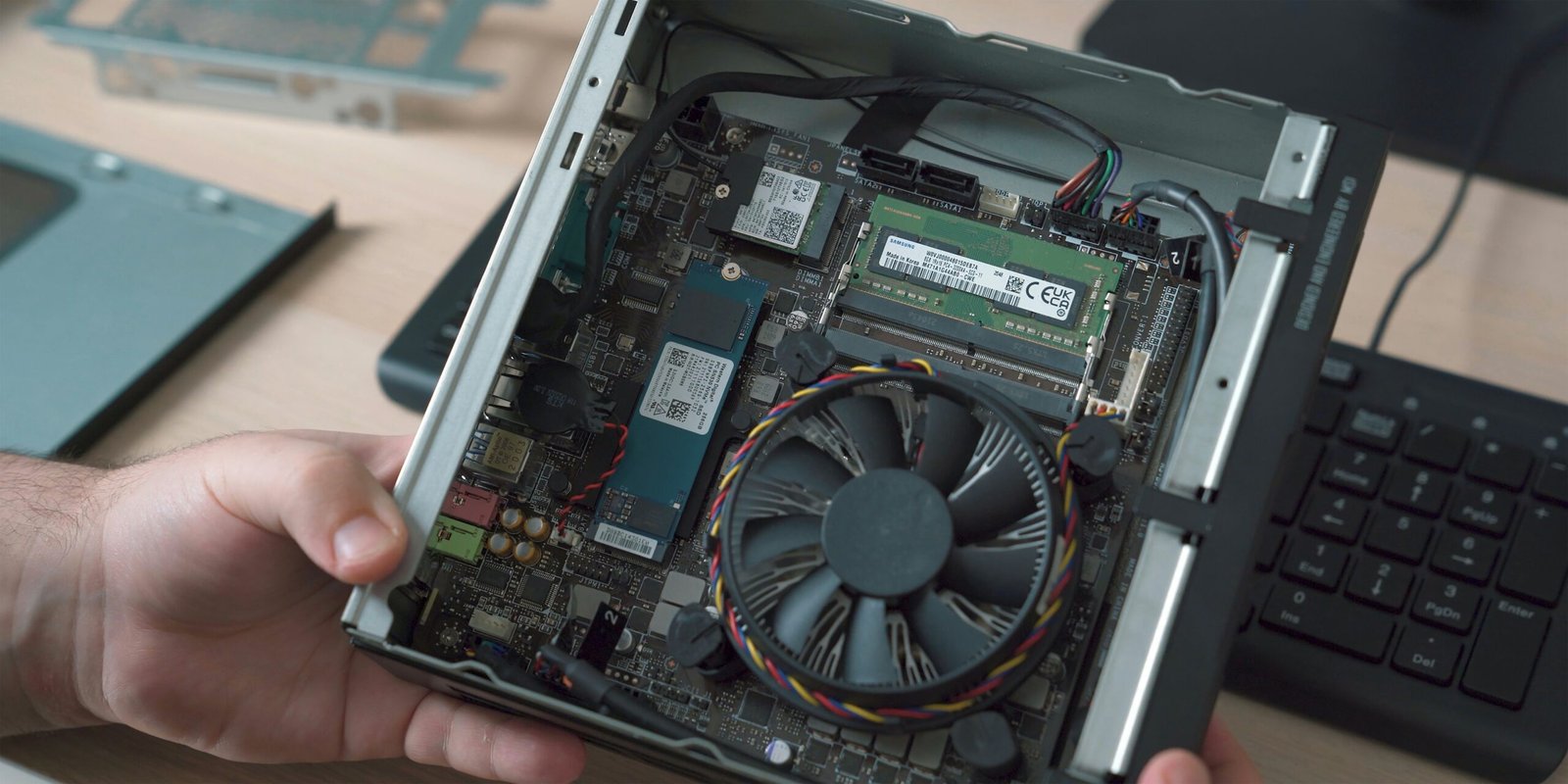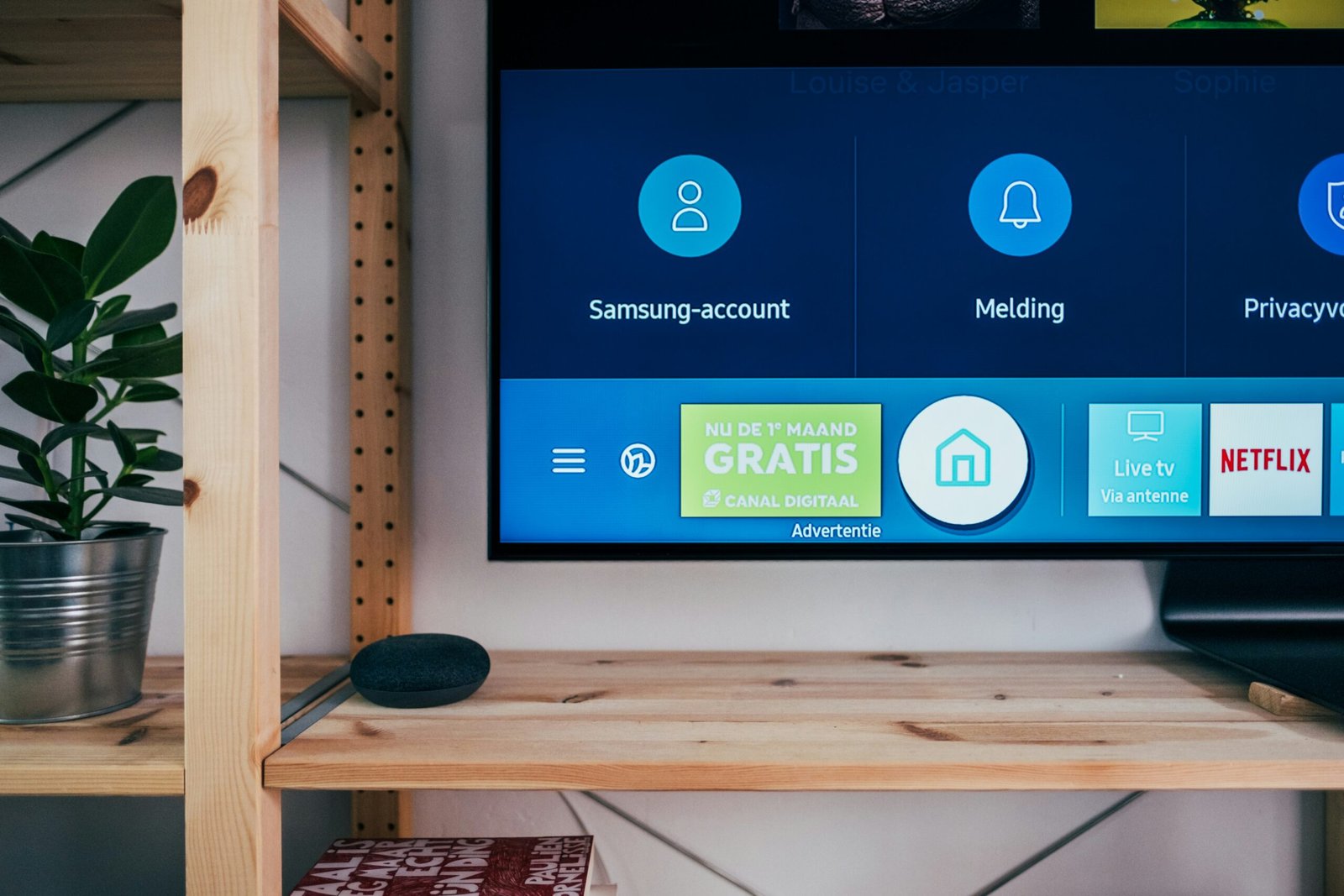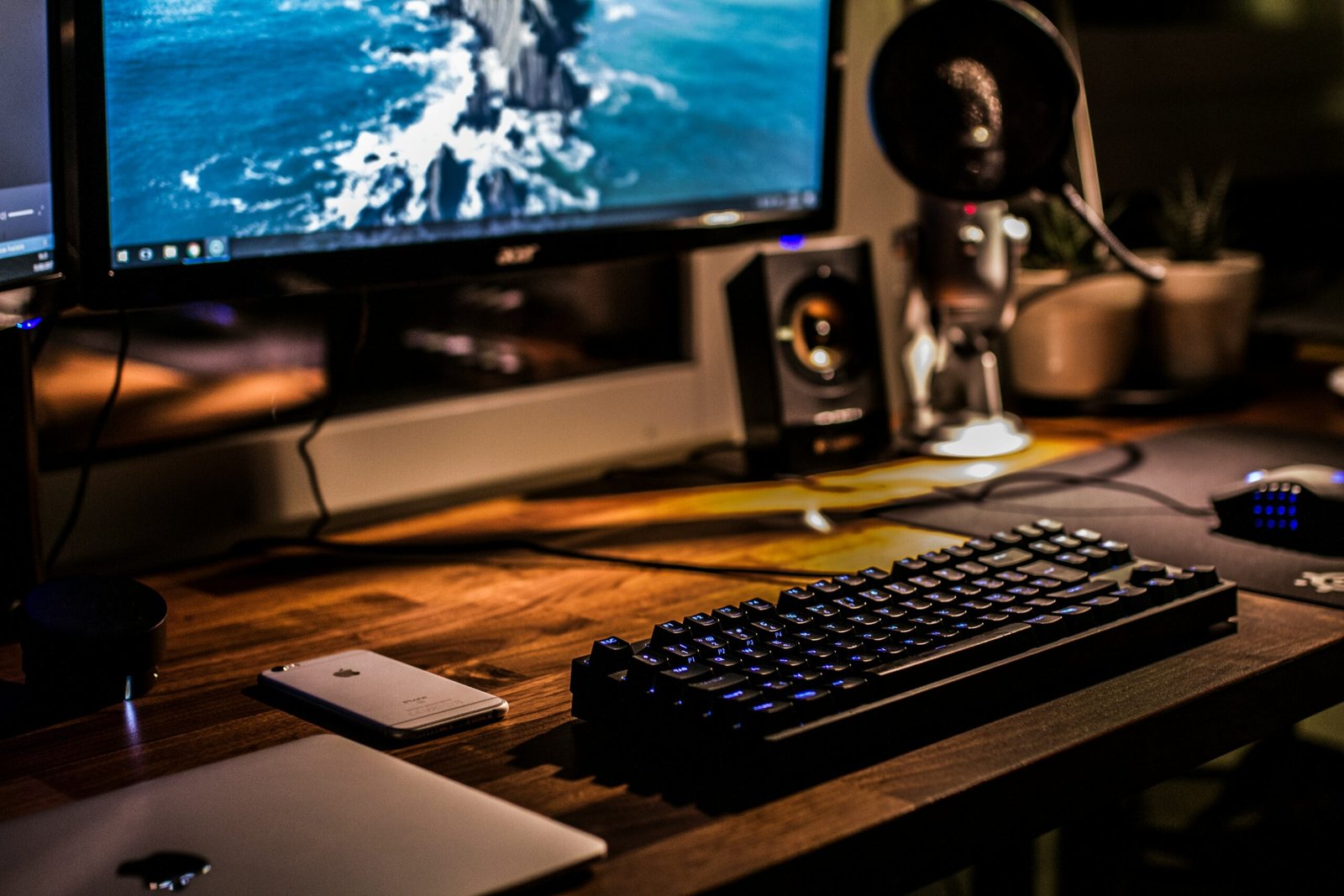Is a Mini PC Worth Buying? A Comprehensive Guide
Introduction to Mini PCs
Mini PCs, a novel category of computing devices, have emerged as a compelling alternative to traditional desktops and laptops. Distinguished by their compact form factor, these devices are designed to deliver substantial computing power while requiring minimal desk space. This unique combination of power and portability has led to their increasing popularity among a diverse range of users.
The inception of mini PCs can be traced back to the desire for smaller, energy-efficient computing solutions. Originally catering to niche markets such as digital signage and industrial applications, technological advancements have propelled mini PCs into the mainstream. Modern mini PCs are equipped with sophisticated processors, ample storage, and high-speed connectivity, rivaling the performance of many full-sized desktops and even some laptops.
Historically, the evolution of mini PCs parallels significant milestones in computer technology. The transition from bulky, power-hungry components to compact, energy-efficient alternatives has been a gradual yet profound shift. Innovations in processor design, heat dissipation technology, and solid-state storage have been instrumental in this transformation. The advent of system-on-a-chip (SoC) architecture, integrating all essential components onto a single chip, has been particularly influential, enabling the creation of powerful yet small computing units.
In today’s context, mini PCs cater to a wide audience, from business professionals seeking efficient workstations to home users desiring a clutter-free entertainment setup. Their versatility is further enhanced by customizable hardware options, allowing users to tailor performance to specific needs. As more consumers and businesses recognize the benefits of reduced energy consumption and space savings, the adoption of mini PCs is poised to grow.
This comprehensive guide aims to delve deeper into the features, benefits, and considerations associated with mini PCs, providing you with the insights needed to determine whether a mini PC is the right investment for your computing needs.
Advantages of Mini PCs
Mini PCs offer a host of advantages over their traditional desktop counterparts, making them an attractive choice for various applications. The compact size of mini PCs is one of their most notable benefits. Their small footprint allows them to fit in spaces where regular desktop PCs would be impractical. Whether it’s for a clutter-free home entertainment setup or a minimalist office environment, mini PCs can seamlessly blend into any setting.
Energy efficiency is another significant advantage of mini PCs. These devices are typically designed to consume less power compared to traditional desktops. Reduced power consumption not only contributes to lower electricity bills but also aligns with environmentally friendly practices. This makes mini PCs an excellent option for individuals and organizations looking to minimize their carbon footprint.
Cost-effectiveness is a vital factor that further enhances the appeal of mini PCs. Generally, they come at a lower price point than traditional desktop computers. This affordability does not equate to a compromise on performance. Mini PCs can handle a variety of tasks efficiently, from everyday office work to streaming high-definition content. Educational institutions, in particular, benefit immensely as they can equip more students with these affordable and reliable devices.
When it comes to versatility, mini PCs prove to be highly adaptable. For home entertainment, a mini PC can function as a media center, facilitating seamless streaming and gaming experiences. In office environments, their small size and efficient performance make them ideal for workspace optimization. Additionally, educational settings can leverage mini PCs for computer labs, offering robust functionalities while saving on space and costs.
To illustrate these advantages, consider a traditional desktop PC setup: it requires ample desk space, consumes more power, and often involves higher upfront and maintenance costs. In contrast, a mini PC minimizes space requirements, operates efficiently, and provides a cost-effective solution without sacrificing essential features. These attributes collectively underscore why mini PCs are becoming an increasingly popular choice among various user groups.
Limitations and Considerations
Despite their numerous advantages, mini PCs come with certain limitations and considerations that potential buyers should be aware of. One primary concern is the limited hardware upgrade options. Mini PCs are designed to be compact, which often means there is little room for additional internal components or upgrades. Unlike traditional desktops, where users can easily swap out components like the GPU, RAM, or storage, mini PCs usually have more restricted upgrading capabilities. This can be a significant drawback for users who prefer keeping their systems current with the latest hardware.
Another crucial aspect to consider is the potential performance issues in certain high-demand applications. While mini PCs are perfectly adequate for everyday tasks like browsing, office work, and media consumption, they may struggle with high-end gaming or professional applications that require substantial processing power. High-performance applications like 3D rendering, advanced video editing, or modern AAA gaming titles may experience reduced efficiency, latency, or lower frame rates on most mini PCs compared to their full-sized counterparts. Users with such requirements will need to carefully assess the specifications of any mini PC they are considering to ensure it can meet their performance needs.
Connectivity is also a factor that should not be overlooked. Mini PCs typically offer a range of ports, but the quantity and variety can be more limited compared to standard desktops. For instance, users may find fewer USB ports, limited video output options, or lack of specialized ports necessary for certain peripherals. This can be particularly challenging in environments where extensive connectivity is essential, requiring users to find additional solutions such as USB hubs, docking stations, or wireless peripherals to overcome these limitations.
By weighing these considerations, users can better match their computing needs with the capabilities of a mini PC. Understanding both the benefits and limitations ensures a balanced perspective, aiding in a more informed purchasing decision.
Popular Use Cases for Mini PCs
Mini PCs have witnessed a plethora of applications due to their combination of compactness and versatility. One of the prime areas where mini PCs shine is as media centers. With increasing popularity among users wanting a seamless streaming experience, mini PCs are often configured with HDMI outputs and powerful processors, enabling smooth playback of high-definition video content. Applications like Plex, Kodi, and Netflix optimize the media rasps performance and make it a cost-effective alternative to traditional home-theater setups.
Another significant application for mini PCs lies in digital signage. Businesses and retail environments frequently employ mini PCs to drive advertisements and informational displays. Their low-power consumption and reliable performance make them ideal for 24/7 operation, whether on shop floors, in waiting areas, or public transport terminals.
For small business infrastructure, mini PCs serve as efficient small business servers. They manage essential functions such as file storage, network management, and interpersonal collaboration tools. By running applications like Microsoft’s Windows Server or Linux-based solutions, small businesses achieve dependable server capabilities without the costs associated with full-sized hardware. Moreover, the compact nature of mini PCs allows businesses to save valuable office space.
Educational environments also benefit significantly from mini PCs. Classrooms and learning centers leverage these devices as convenient student workstations, computer labs, or even dedicated stations for coding classes. Their affordability enables educational institutions to deploy multiple units, thereby increasing accessibility to digital tools and resources for students.
Gamers are another group finding utility in mini PCs, particularly for lightweight and casual gaming. Titles such as “League of Legends,” “Minecraft,” and “Among Us” run competently on these devices. Some high-performance mini PCs support more demanding games by integrating dedicated graphics processors, making them a versatile option for both casual and semi-serious gamers.
These examples underscore the adaptable nature of mini PCs across various domains. Whether for entertainment, business, education, or gaming, mini PCs offer robust and specialized solutions to meet the specific needs of different users effectively.
“`html
Comparing Mini PCs with Other Computing Devices
When deciding whether a mini PC is worth buying, it is crucial to compare it with other common computing devices such as desktops, laptops, and tablets. Each type of device has distinct strengths and limitations, influenced by factors like performance, portability, cost, and intended use.
First and foremost, performance is a vital consideration. Traditional desktops generally offer the highest performance levels, given their larger chassis, which can house powerful components and advanced cooling systems. If raw power and multitasking capabilities are essential, desktops are usually the best option. Mini PCs, on the other hand, offer commendable performance, often sufficient for everyday tasks, multimedia consumption, and even light gaming. In contrast, laptops, particularly gaming or high-end models, can also provide significant performance but often at a higher cost due to their portability features. Tablets lag behind in this aspect, focusing more on convenience and basic computing tasks.
Portability is where mini PCs begin to shine. While desktops are bulky and stationary, mini PCs offer a compact and light solution without sacrificing too much on performance. They can easily be transported, making them ideal for users who need computing power at various locations. Laptops are inherently portable, but their size and weight can vary significantly. Tablets, though the most portable, fall short when it comes to versatility and performance compared to mini PCs.
Cost is another determining factor. Desktops often require a higher initial investment but can be more cost-effective in the long run due to upgradability. Mini PCs are generally more affordable than high-end laptops and provide a good balance between cost and functionality. Laptops, especially those with extensive features, can be more expensive, while tablets are typically the least expensive but also the least capable for demanding tasks.
Regarding intended use, mini PCs find a unique niche. For users looking for a middle ground between the robust power of a desktop and the convenience of a laptop, a mini PC can be an excellent choice. They are suitable for home offices, media centers, and light-to-moderate computing needs. Desktops are optimal for professional and high-performance tasks, while laptops are best for users requiring mobility. Tablets serve well for casual browsing, media consumption, and light productivity tasks.
“`
How to Choose the Right Mini PC for Your Needs
When selecting the ideal mini PC for your needs, several key specifications are paramount to consider. To begin with, processor type significantly influences performance. Whether you are opting for light office work or resource-intensive tasks, choosing between Intel Core series, AMD Ryzen, or ARM processors is crucial. Intel Core i5 or higher is recommended for heavy multitasking and gaming, whereas ARM processors could be sufficient for basic tasks such as web browsing and media consumption.
Next, the amount of RAM in your mini PC profoundly impacts its multitasking capabilities. For general use, 4GB to 8GB of RAM should suffice. However, for graphic design, video editing, or gaming, at least 16GB of RAM is advisable to ensure seamless operation.
Storage is another pivotal factor. Solid State Drives (SSDs) are preferable over traditional Hard Disk Drives (HDDs) due to their faster data retrieval speeds and reliability. Depending on your usage, choose between 256GB to 1TB of storage space. If budget permits, NVMe SSDs significantly enhance performance compared to standard SSDs.
Equally important are the available ports on the mini PC. Multiple USB ports, HDMI, DisplayPort, and Ethernet ports offer flexibility in connectivity. For users requiring multiple monitors or high-speed internet, ensuring the mini PC supports these specifications is essential.
Brand reliability can not be overlooked. Lenovo, Intel NUC, ASUS, and HP offer comprehensive options across various price points. It is also worth examining customer reviews and warranty policies to gauge long-term reliability and after-sales support.
Budget considerations significantly influence your choices. For entry-level tasks, opting for mini PCs in the lower price range is reasonable. Mid-range budgets can accommodate brands offering better specifications and durability, while a higher budget opens the door to premium models boasting superior performance and advanced features.
By keeping these critical factors in mind, you can navigate the myriad options available and select a mini PC that best aligns with your specific needs and budget constraints, ensuring a worthwhile investment.
Setting Up and Maintaining Your Mini PC
Setting up a mini PC is a straightforward process that ensures optimal performance and longevity. Begin by unboxing and inspecting all components. Verify that you have the mini PC unit, power adapter, necessary cables, and any peripherals such as a mouse, keyboard, and monitor. Ensuring completeness helps avoid disruptions during setup.
Start by positioning the mini PC in a well-ventilated area to prevent overheating. Connect the power adapter and plug it into a surge protector to safeguard against electrical fluctuations. Attach the monitor using the appropriate HDMI or DisplayPort cable. Next, connect the keyboard and mouse to the USB ports of the mini PC. Power on the mini PC and follow the on-screen instructions to complete the initial operating system setup.
Optimizing performance involves a few critical steps. Begin by updating the operating system and hardware drivers—this ensures compatibility and stability. Install necessary software applications, but be mindful of the mini PC’s storage constraints. Utilizing cloud storage can mitigate these limitations. Close any unnecessary background applications to conserve resources.
Beyond initial setup, maintaining your mini PC is vital for sustained performance. Regularly dust the unit to prevent overheating; a can of compressed air works well for this task. Schedule automatic software updates to keep your system secure and running smoothly. Monitoring system resources using built-in utilities can help you identify and manage resource-intensive applications, ensuring optimal performance over time.
Peripheral management also plays a crucial role. Use external storage devices judiciously to avoid overburdening the mini PC’s internal storage. An external hard drive or SSD provides ample space without throttling the system’s performance. Periodically back up important data to mitigate data loss scenarios.
Incorporating these practices will help you maintain your mini PC’s efficiency and longevity, maximizing your investment. From unboxing to daily maintenance, taking these steps will ensure your mini PC remains a reliable and performant machine.
“`html
Real-World Reviews and Testimonials
Real-world user experiences are invaluable in determining the practicality and reliability of mini PCs. Numerous testimonials from actual users paint a vivid picture of both the advantages and some of the challenges associated with these compact devices.
One user, Mark T., who switched to a mini PC for his home office setup, highlights its remarkable space-saving aspect and silent operation. He remarked, “The mini PC virtually disappears behind my monitor, freeing up significant desk space. Plus, it’s whisper-quiet, which enhances my focus during work hours.” This sentiment is echoed by many users who appreciate a clutter-free workspace.
On the other hand, Susan L., another satisfied customer, extolled the mini PC’s versatility. She said, “I was amazed at how easily my mini PC handled tasks ranging from basic email checking to more demanding applications like video editing.” Her positive experience emphasizes the device’s capability to perform a variety of tasks efficiently.
However, it’s not all smooth sailing for every user. John M., who used a mini PC for gaming, faced some limitations in performance. “While the mini PC handled day-to-day tasks well, it struggled with high-end gaming graphics, leading to occasional lag,” he noted. His feedback suggests that while mini PCs are efficient for most activities, they might not meet the demands of high-performance gaming.
In terms of reliability, Maria V.’s review highlighted the mini PC’s durability and low maintenance. She shared, “I’ve had my mini PC for over two years, and it continues to perform flawlessly with minimal upkeep required.” This long-term reliability has contributed to a generally positive perception among users.
In summary, real-world reviews and testimonials reveal that while mini PCs offer significant benefits such as space-saving, quiet operation, and versatility, they might fall short in certain high-performance scenarios like gaming. The overall user satisfaction reflects a high reliability and adaptability, making mini PCs a worthy consideration for a variety of everyday purposes.
“`
Conclusion: Is a Mini PC Worth Buying?
After a thorough evaluation of mini PCs, it’s clear that this category of computing devices presents a range of compelling advantages. Mini PCs are particularly appealing due to their compact size, energy efficiency, and cost-effectiveness. For users who prioritize space-saving solutions without compromising on performance, particularly in environments such as home offices, media centers, or academic settings, mini PCs offer an exceptional alternative to traditional desktop computers.
However, like any device, mini PCs come with limitations. While they are perfect for general tasks like web browsing, word processing, and media streaming, their performance might fall short for intensive applications such as high-end gaming or complex video editing. Potential buyers should consider their specific use cases and weigh them against the capabilities of mini PCs. This evaluation ensures that the device will meet their needs optimally without unexpected compromises.
Furthermore, mini PCs excel in niche applications where portability, silent operation, and low power consumption are critical. For instance, businesses can deploy mini PCs for digital signage, point-of-sale systems, and kiosk setups where space is at a premium. Similarly, educators can benefit from deploying these devices in classrooms, providing students with efficient and cost-effective computing solutions.
In assessing the overall value of mini PCs, it’s essential to recognize that they offer a unique blend of functionality, convenience, and affordability. When chosen with an understanding of their strengths and limitations, mini PCs represent a smart investment for a variety of users. Therefore, for those seeking a versatile, space-efficient, and budget-friendly computing option, a mini PC is indeed worth considering.

